SUMMARY
This is AI generated summarization, which may have errors. For context, always refer to the full article.
![[OPINION] 10 reasons why mother tongues in schools should be saved](https://www.rappler.com/tachyon/2020/08/mother-languages.jpg)
In 2013, the Philippines made a bold move by including an array of native languages in the basic education system, which was commended by international organizations like UNESCO, academic conferences, and advocates of fair, culturally-appropriate, and accessible education.
This program, called Mother Tongue-Based Multilingual Education (MTB-MLE), was an emblem of hope for children of minorities who would be able to understand instruction better in their home languages, and participate more actively in the learning process. Through this program, the Philippines showed a strong example to other countries in making education more inclusive, and in its commitment to cultural and linguistic diversity.
Now, some lawmakers want to abolish mother tongues from schools. We believe this would be a huge step backwards. Here are 10 reasons why the the mother tongue program should be saved.
- Children’s rights.
The United Nations Convention on the Rights of the Child states that a child shall not be denied the right to use his or her own language. Removing mother tongues as mediums of instruction will result in many situations in which children are not able to freely use their native languages, as they will be pressured to use English and Filipino only. This was the status quo before the mother tongue policy, and it is a violation of children’s rights. - Learning materials.
The mother tongue policy has generated thousands of learning materials like stories, poems, songs, primers, and even textbooks in local languages, which didn’t exist before. Teachers, local writers, and local publishers have invested a lot of time and creativity to make these multilingual materials, bringing to life local knowledge, folklore, and history for the next generation. If mother tongues are abolished, learning materials will tend to be more centralized and uniform, written solely in English and Filipino, and monopolized by Manila-publishing companies. They will be less contexualized to learners in different regions, and cannot adequately represent local communities as well as locally-produced materials in native languages. - Lessons learned.
The multilingual policy is less than a decade old. It is very young compared to the mediocre bilingual policy which lasted for 4 decades. The principles of the multilingual policy were ethically and scientifically sound, but it has faced challenges. DepEd and research institutions have been finding ways to make MTB-MLE work in 4 contexts, and such research should be allowed to continue in order to adapt it effectively. Education reform takes time, but frequent political interventions undermine this process. It would be more prudent to improve the mother tongue program, guided by research, rather than abolish it entirely. - Diversity as a resource.
Cultural and linguistic diversity are special resources of humanity. Our many languages make our society more resilient, interesting, and flexible. They are also windows to our past and transmit knowledge to our future. The Action Plan for the Universal Declaration on Cultural Diversity commits governments to encourage linguistic diversity, including the mother tongue, “at all levels of education, wherever possible, and fostering the learning of several languages from the earliest age.” Removing the mother tongues and shifting to a bilingual/monolingual education system is an attack on linguistic diversity and goes against the Universal Declaration on Cultural Diversity. - Multilingualism and multiliteracy as an advantage.
DepEd’s MTB-MLE program aims to make children multilingual and multiliterate, so that they can speak and write in their own language (mother tongue), the national language, and English. People who are multilingual enjoy many advantages. They have more options to communicate, have access to more cultural resources, and tend to be more tolerant and adaptable. Multilingual people also have various cognitive advantages, such as enhanced memory, language learning skills, and multitasking abilities. As for writing, research has shown that writing skills in one’s mother tongue correlate strongly with the writing skills in second languages, which means a solid foundation in the mother tongue raises the potential for literacy development in other languages. However, school systems that do not include local languages erode multilingualism and multiliteracy (and the associated benefits), as they pressure students and parents to stick to the dominant language. - History, culture, and identity.
Since time immemorial, the Philippines has been a multilingual archipelago. Filipinos have always spoken many languages, including Tagalog, Cebuano, Ilokano, Waray, Bahasa Sug, Kapampangan, Maranao, and many more. It is a natural and basic aspect of Filipino history and culture. The mass education system, which was established by the Americans, has never fully reflected that reality. For decades, we had a pure English curriculum, and then a bilingual one of English and Tagalog. The K-12 reform, with content and languages adapted to the learners in the early grades, was a step in the right direction. It has enabled children to learn more about the history of various Filipino ethnic groups, especially their own, and to appreciate the contributions that each have made to the development of the country. This fosters formation of richer identities, intercultural understanding, equality, and peaceful coexistence. - Education access and student-centered learning.
While most Filipinos can speak English and Tagalog, these aren’t the languages that families in many parts of the country use. Many children learn local languages first, such as Cebuano, Hiligaynon, Waray, Maguindanaon, and others. If school languages are matched appropriately to community languages, this will make learning more accessible to children. The school becomes a familiar and welcoming place, like home. Anecdotal evidence of teachers and several studies (e.g. PIDS, 2019) have discovered that in mother tongue-based classrooms, children are more active and participatory. They feel more comfortable asking and answering questions, sharing their thoughts, and doing things on their own. These behaviors foster critical thinking and mean they are more in control of their learning.
- Education quality.
One of the main motivations for Mother Tongue-Based Multilingual Education was to improve the quality of education. International and local research has convincingly shown that children learn more efficiently and effectively through the language that they habitually speak at home (UNESCO, 2011). This makes sense, because the language you speak with your family is generally the language you know best. Therefore, development of literacy skills (like learning how to read) is faster in your mother tongue than through a second language. Moreover, you will grasp concepts of most subjects more easily if the teacher is speaking your home language. Yes, there have been snags in the MTB-MLE program, like schools selecting the wrong “mother tongue,” but these are fixable problems related to implementation. The principles and potential of MTB-MLE still stand tall. - Autonomy and responsibility.
The mother tongue-based multilingual program, along with school-based management, is one of the few areas of potential decentralization in DepEd. The Enhanced Basic Education Act of 2013 devolves the production and approval of learning materials to the regions and divisions. Therefore, regions, divisions, and schools have been at the forefront of making learning materials in the early grades, contexualized to their learners’ languages. And because every native language is different, teachers have adopted novel approaches to teach children using their mother tongues. Adaptation and contextualization are central to MTB-MLE, which empowers teachers to provide more relevant learning experiences for their students. Case studies also show that production of materials has tapped into various sources of funding from LGU and NGOs, broadening community involvement in education. - Indigenous rights.
The United Nations Declaration on the Rights of the Indigenous People establishes that Indigenous peoples have the right to establish and control their educational systems and institutions, providing education in their own languages, in a manner appropriate to their cultural methods of teaching and learning. Removing indigenous languages from the education system would be a gross violation of their rights. We congratulate DepEd and indigenous communities for being able to make learning resources in more than 25 languages, and we must respect and protect these efforts.
For all these reasons, it would be a huge mistake for Congress or DepEd to cancel the mother tongue-based multilingual education program. Instead, it would be wise to focus our efforts on improving it and making it more adaptable, so that the right languages are used in the right places and in the right way. – Rappler.com
Ched E. Arzadon is a professor at the College of Education, University of the Philippines Diliman, with a main research interest in alternative and inclusive education.
Elizabeth A. Calinawagan is a retired Professor of Filipino and Linguistics and former Dean of the College of Arts & Communication, University of the Philippines, Baguio.
Firth McEachern is a Harvard University and Ateneo de Manila graduate, and has worked as an education researcher, trainer, and consultant for local and international organizations.
Multilingual Philippines is an informal network of advocates for flexible and inclusive policies related to language and education. It is composed of educators, students, attorneys, and other members of the public from various regions, institutions, and language backgrounds. They raise awareness about the value of linguistic and cultural diversity, and the need for this diversity to be adequately represented in government policies for the benefit of all Filipinos.
Add a comment
How does this make you feel?
![[Time Trowel] Mentorship matters](https://www.rappler.com/tachyon/2024/04/mentorship-matters.jpg?resize=257%2C257&crop_strategy=attention)
![[OPINION] Education for life: Weaving ethics in all subject areas](https://www.rappler.com/tachyon/2024/03/Education-for-Life-Weaving-Ethics-in-All-Subject-Domains.jpg?resize=257%2C257&crop_strategy=attention)
![[OPINION] Limited intake of international students: Is Canada knee-capping its future?](https://www.rappler.com/tachyon/2024/02/tl-canada-forgeign-student-cap-02232024-2.jpg?resize=257%2C257&crop_strategy=attention)
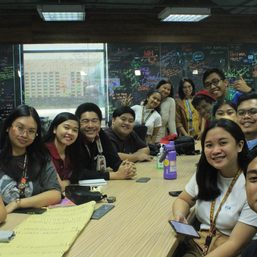
![[Rappler Investigates] Who’s fooling who?](https://www.rappler.com/tachyon/2024/02/rodrigo-sara-duterte-2019.jpeg?resize=257%2C257&crop=167px%2C0px%2C900px%2C900px)
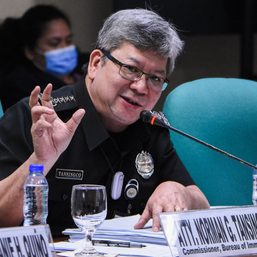

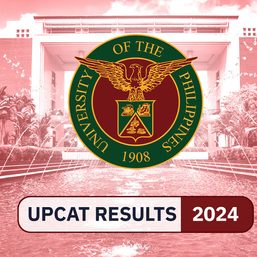
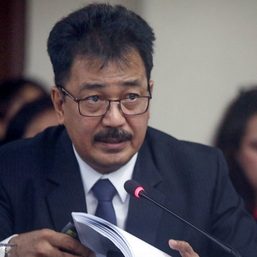


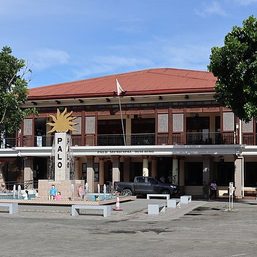

![[The Slingshot] No, no, no, National Museum! The Boljoon artifacts do not belong to you!](https://www.rappler.com/tachyon/2024/02/tl-boljoon-artifacts-nat-museum-02242024.jpg?resize=257%2C257&crop=270px%2C0px%2C720px%2C720px)
There are no comments yet. Add your comment to start the conversation.